Coronavirus: Executive agrees changes to travel quarantine regulations
- Published
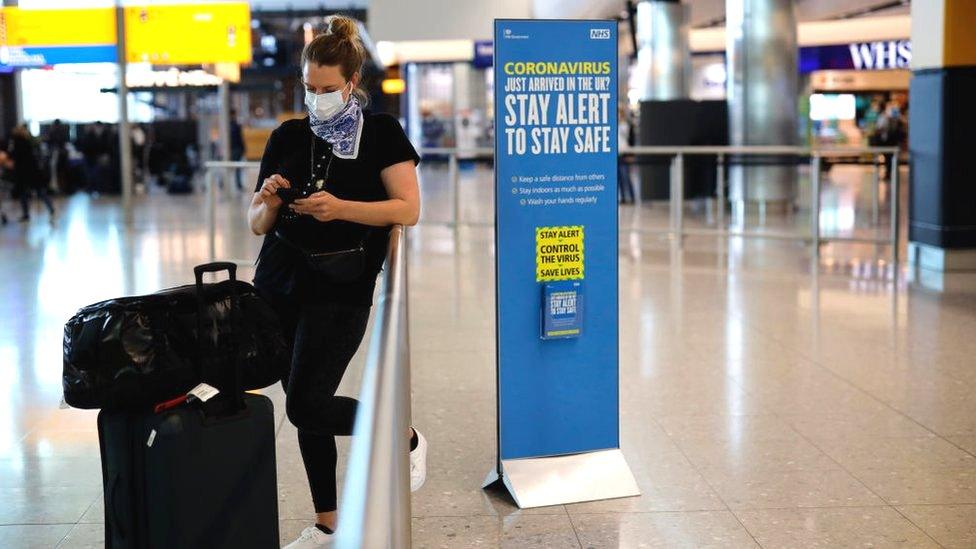
Currently, anyone entering from outside the Common Travel Area must isolate for 14 days
People arriving in Northern Ireland from more than 50 countries including France, Spain, Germany and Italy will soon no longer need to quarantine.
The Stormont Executive agreed the changes after a review of the travel regulations.
Currently anyone entering Northern Ireland from outside the Common Travel Area must isolate for 14 days.
It brings NI into line with England and Scotland, where travel relaxations take effect tomorrow (Friday).
The executive said there will be "no self-isolation requirement for those travelling to Northern Ireland from low to medium risk countries".
The Department of Health says the new travel regulations would be laid in the Assembly on Thursday evening and take effect from Friday 10 July.
The Common Travel Area covers the United Kingdom, Republic of Ireland, Isle of Man and the Channel Islands.
Northern Ireland's quarantine rules took effect on 8 June, with fines of up to £1,000 possible for those caught leaving isolation prematurely.
The restrictions came into place in early June in a bid to stop coronavirus entering the country as the number of cases was falling.

When do places reopen?
At Thursday's meeting, ministers agreed to bring forward some more changes to the lockdown restrictions:
10 July: Indoor fitness studios and gyms, bingo halls and amusement arcades, outdoor leisure playgrounds and cinemas can reopen
10 July: Indoor weddings and baptisms can be held in places of worship, as well as marriage and civil partnership services in local government offices and other venues
11 July: Horse racing and outdoor equestrian competitions and outdoor competitive games and sporting events can resume for grassroots and professional sport, but no spectators are allowed
16 July: Libraries can reopen with social distancing measures in place
17 July: Indoor sport and leisure facilities can reopen, including skating rinks and leisure facilities, however swimming pools are excluded

Amended briefing
The changes in the quarantine regulations come in the wake of a document given to the Health Minister Robin Swann which advised that travellers from the rest of the UK present "the greatest risk" of bringing Covid-19 into Northern Ireland.
But the BBC understands that advice from the executive's chief medical officer and chief scientific adviser, was later amended to remove that wording.
First Minister Arlene Foster dismissed suggestions that the original advice had been watered down.
"As with all leaks you should be careful of the date on the paper, that was an older paper never discussed at the executive, things change - these things only cover travel outside of the Common Travel Area - these regulations were never going to apply in any event to UK travel," she told a press conference in County Fermanagh.
"The absolute risk of people entering Northern Ireland from the rest of the UK has gone down dramatically.
"The chief medical officer wanted to make us aware of that today," she said.
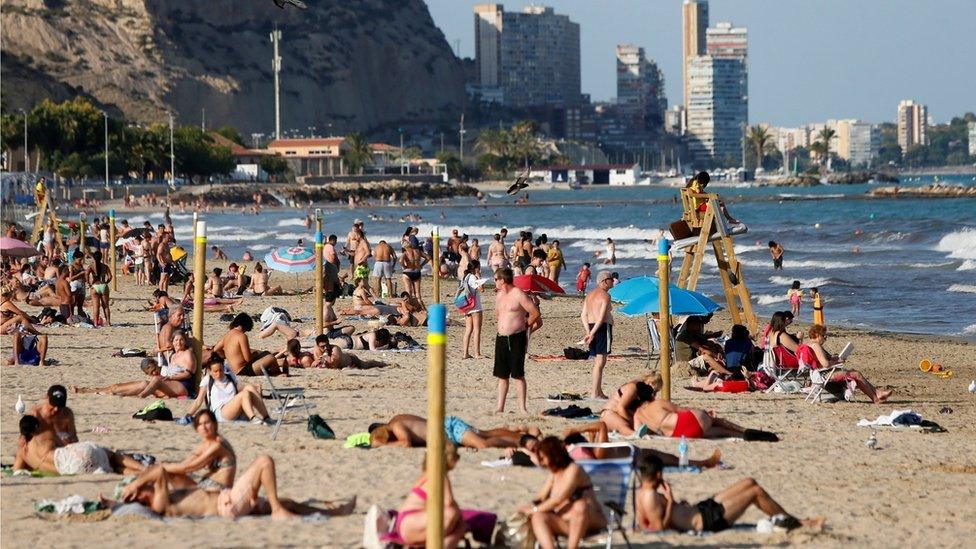
There are 50 countries on the 'low to medium risk' countries which no longer require a 14 day quarantine period
Mrs Foster also said the Chief Medical Officer Dr Michael McBride was working with his counterparts across the UK to learn lessons regarding outbreaks of the virus in areas of England, where local lockdowns have had to be imposed.
Earlier Northern Ireland Secretary Brandon Lewis rejected suggestions of quarantine between UK nations to prevent the spread of coronavirus, arguing it would amount to a "breach" of the Common Travel Area.
The government's focus would be on implementing local lockdowns in cases of specific outbreaks, he added.

Analysis
By Stephen Walker, BBC News NI Political Correspondent
The news that the executive is to relax travel regulations comes as no surprise, but the move is not risk-free.
Other parts of the UK have agreed to relaxations and, after lengthy consultations between medical experts and ministers, Northern Ireland's rules will now look very similar.
The news will be greeted well by the travel industry who felt that the original 14 day period for travellers outside the Common Travel Area was a hindrance.
Some within the transport sector in Northern Ireland were also critical of the time the Executive took to make this decision.
Earlier this week, Belfast International Airport's Graham Keddie accused Stormont ministers of "dithering". He will be pleased that change is on the way.
These moves are all part of the slow move out of lockdown but as ever the situation will be watched closely.
It does not mean that today's changes are permanent - officials and ministers have both said the changes need to be monitored.
There are still concerns that there could be local Covid 19 outbreaks which England is experiencing and fears that poor social distancing could see the R number rise.
However, despite such fears today is being billed as a good day in the fight against Coronavirus.
Another small step - as Northern Ireland looks towards life after lockdown.

Taoiseach visit postponed
The first minister also said Taoiseach (Irish PM) Micheál Martin will visit Stormont next Thursday.
Mrs Foster said she did not want to get into speculation about why the trip, which was originally reported to take place today, had been postponed.
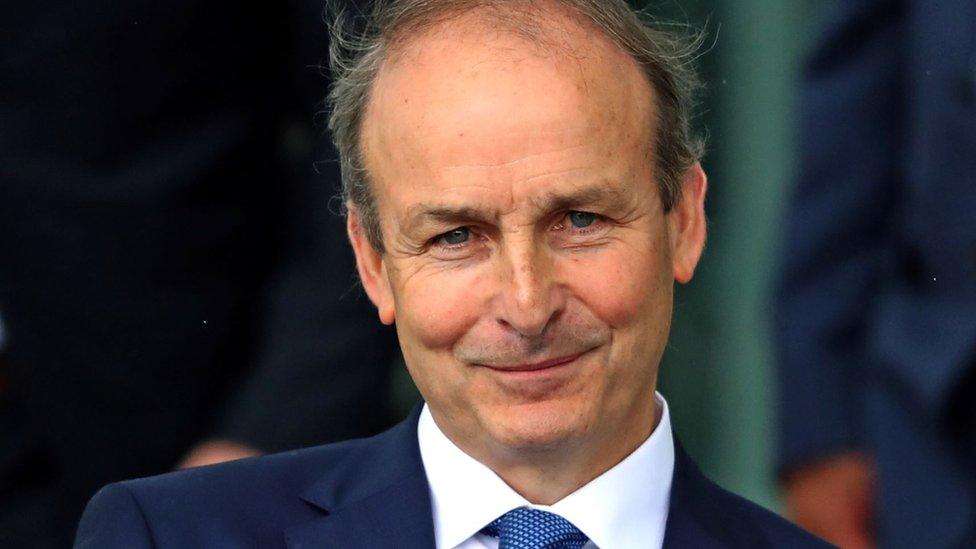
Micheál Martin is set to make his first visit to Stormont since becoming taoiseach
She said she wanted to work with Mr Martin on "matters of mutual concern" and how they could work together to protect both Northern Ireland and the Republic of Ireland from coronavirus.
In the Republic of Ireland, official government advice against all non-essential travel is to remain in place until 20 July.
The Irish government had planned to publish a "green" list of countries.
However, concern about surges of the virus in other countries prompted health advice that those restrictions should remain in place.
- Published8 July 2020

- Published24 December 2020
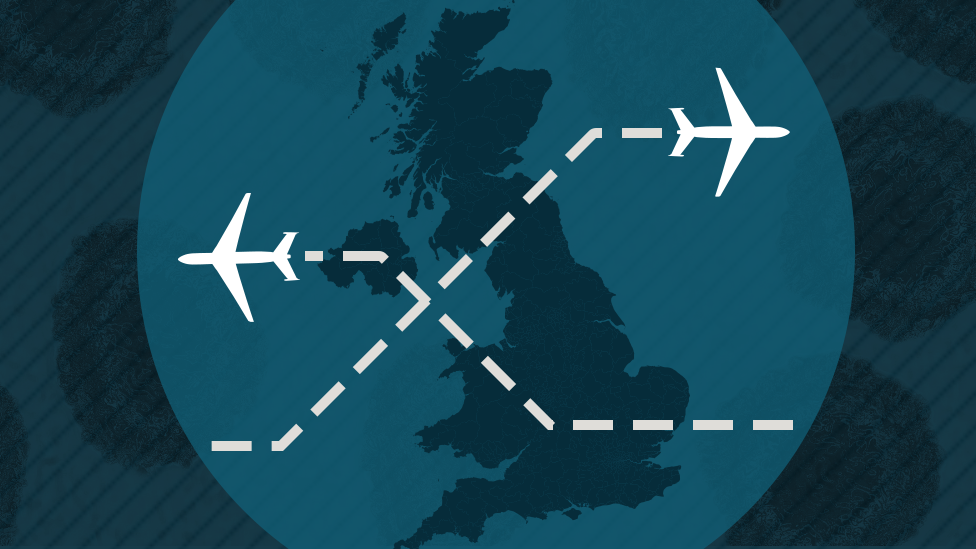
- Published3 June 2020
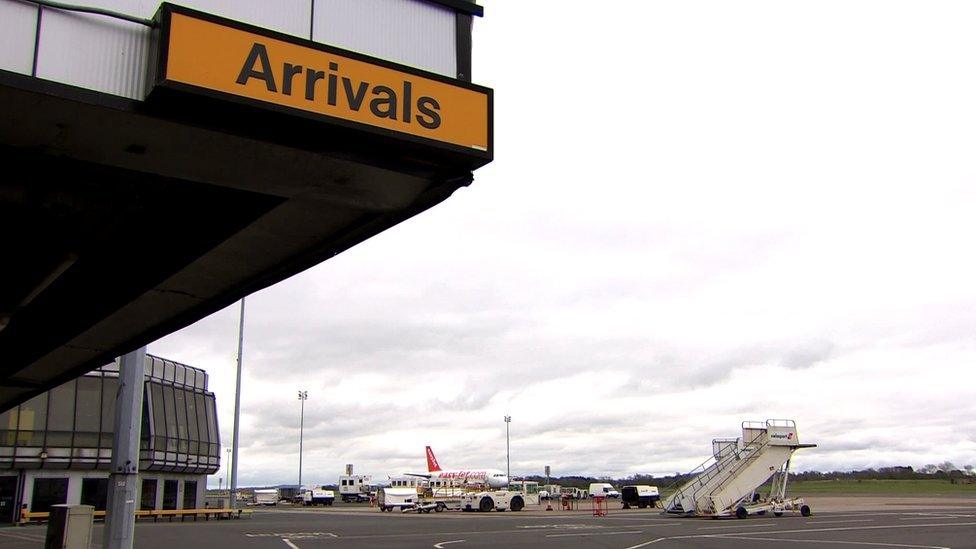
- Published8 July 2020
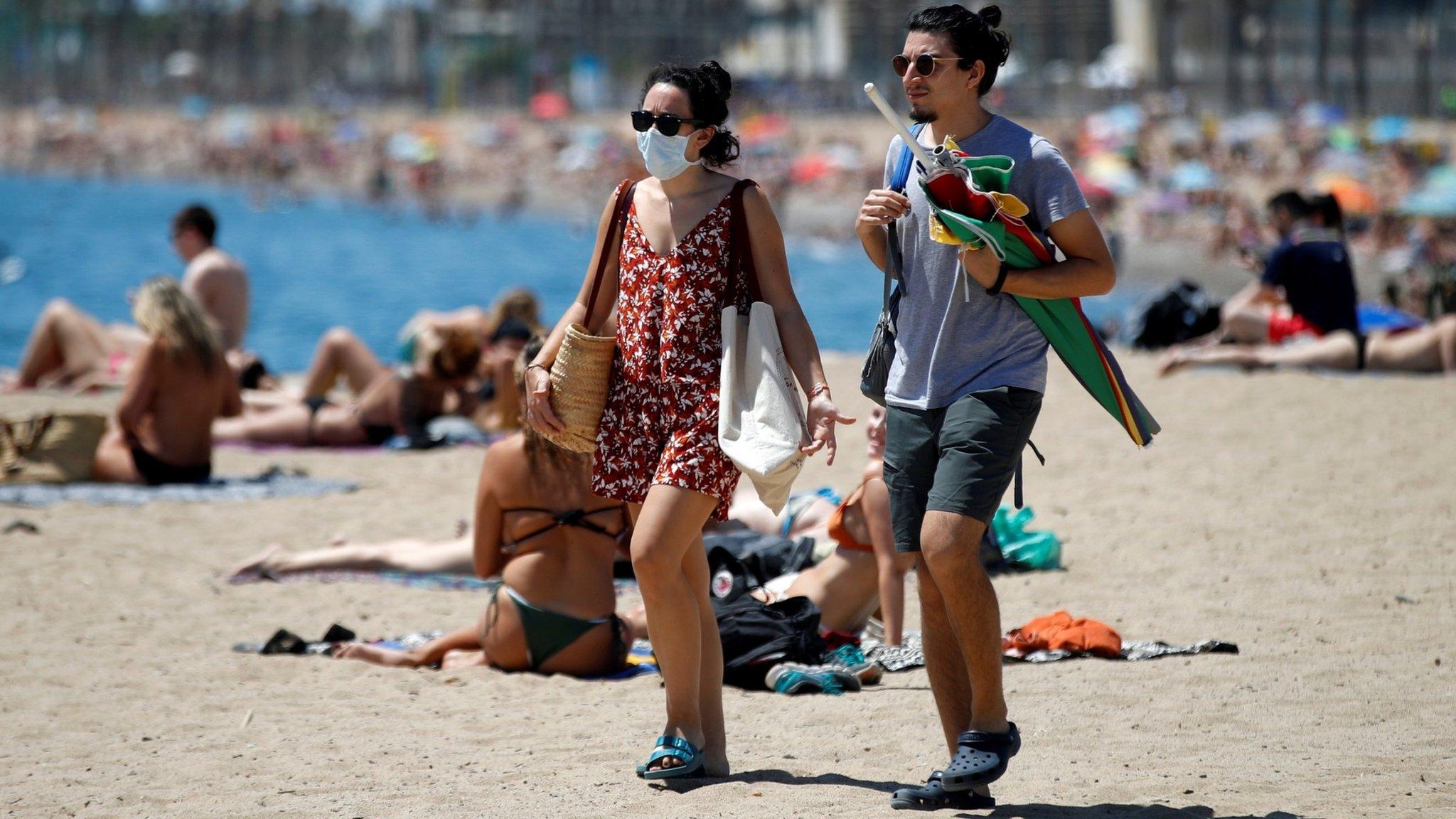
- Published11 February 2022
